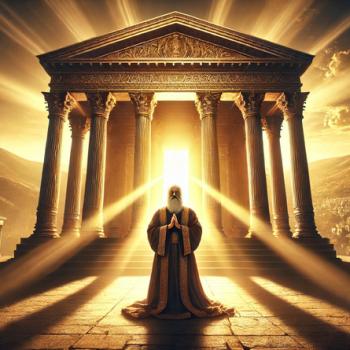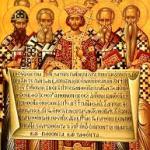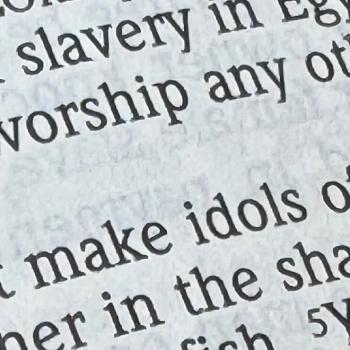When God wants to run the world in his way, he doesn't send in the tanks. He sends in the meek, the mourners, the peacemakers, and the people hungry for justice. By the time the bullies wake up and realize what's going on, they have set up schools, built hospices, made peace, and brought warring armies back together again.
You mentioned a radical element that's often overlooked, which reminds me of something that you write in this book. You say that when the Gospels are allowed to speak for themselves, "not everyone will like the results." Why is that? What do you have in mind there?
Many Christians have lived for far too long with the sense that the Gospel of Jesus has nothing really to say about how we conduct our public life. Or, if it does, it must obviously support the policies of the party for which they voted in the last election. Those ways of looking at the world may well need to be put into the mixer and given a once or twice around because it's not going to look like that when God is in charge.
I assume you're talking about both ends of the political spectrum, Left and Right.
Yes, the key thing is, since the Enlightenment particularly, Western Christians have imagined that the idea of God being king is something that happens in heaven—not on earth. They believe we just have to allow our democratic processes to go on under their own steam. Of course, many Christians get extremely head-up about what the democratic process then produces. I've seen and heard a lot of rhetoric and writing in America, and to a lesser extent in Britain, from Christians arguing very strongly that we should go in this direction or that direction.
The trouble is that we have not taught one another in the church how to think wisely and Christianly about the role of human government, of the state, etc. We've had a very shrunken view of that and we've forgotten that there's a large tradition of Christian political theology. That's where you find some of the classic perfections on the Gospels and the story of God becoming king. It was only gradually, through studying Jesus and the Gospels, that I found myself forced to start thinking more self-critically about all of the political assumptions that I have made all my life.
Like what? What's one way your political behavior has changed in the wake of this reading of the Gospels?
It certainly has in relation to money. Anyone who has heard me talk about, say, Third World debt, or the problems of contemporary capitalism, or the banking system might well say it sounds like I'm pushing hard in a Leftwards direction. Actually, I'm not pushing in a leftwards direction. I'm not saying we should give up capitalism and all become Marxists. But I think we have allowed ourselves to forget that Jesus says far more about money and about the dangers of money, and of greed and qualities based on greed, than he says about sex. That is a major one for me.
As you know, the ancient creeds are becoming fashionable. Contemporary evangelical churches that were once anti-tradition are now recovering corporate confession and saying the creeds each week. You seem concerned that this move is not always accompanied by wisdom. What is your concern there?
As I say in the book, the creeds are great. I subscribe to them. I probably say them a lot more than most of those who you just described because I use the Anglican morning service day-by-day, which includes the Apostle's Creed. But the creeds do not offer a syllabus of all the main things in scripture. There are imbalances. The trouble is they have been used in a way that they were not designed for.
Healthy Christianity has always read the Gospels as well as the creeds. When people say, "I'm a creedal Christian," that's fine, but I hope you're also a Gospel Christian. I would like to see some evidence that you actually know what Matthew, Mark, Luke, and John are talking about. Often that evidence is lacking.
I'm an old-fashioned sort of Protestant. I actually think that God wants the church to be continually reformed by the reading of Scripture. If Luther or Calvin could come back to us today, they would say, "For goodness sake, don't set up traditions. Do what we did: read Scripture for all it's worth and see what God is saying to you." That's the agenda that I've tried to use as the backbone of my professional life.
So, again, it's possible to affirm everything the creeds say, especially about Jesus' divinity and his resurrection, without knowing anything about what the Gospel writers were actually trying to say.
And then the danger is, those doctrines can get hooked into a narrative that is significantly different from the narrative the Gospels are telling. Particularly and obviously like the one we just mentioned, which says: we're all sinners, God sent Jesus, and all those who believe are going to heaven.
You can fit the divinity of Jesus and the death and resurrection of Jesus into that narrative. But then you miss the goodness of creation, the story of Israel (which gives shape to the meaning of Jesus), and particularly the new heaven and new earth—God's kingdom coming on earth as in heaven. It's possible to check all the boxes of the dogmas but to fit them in the wrong narrative.





